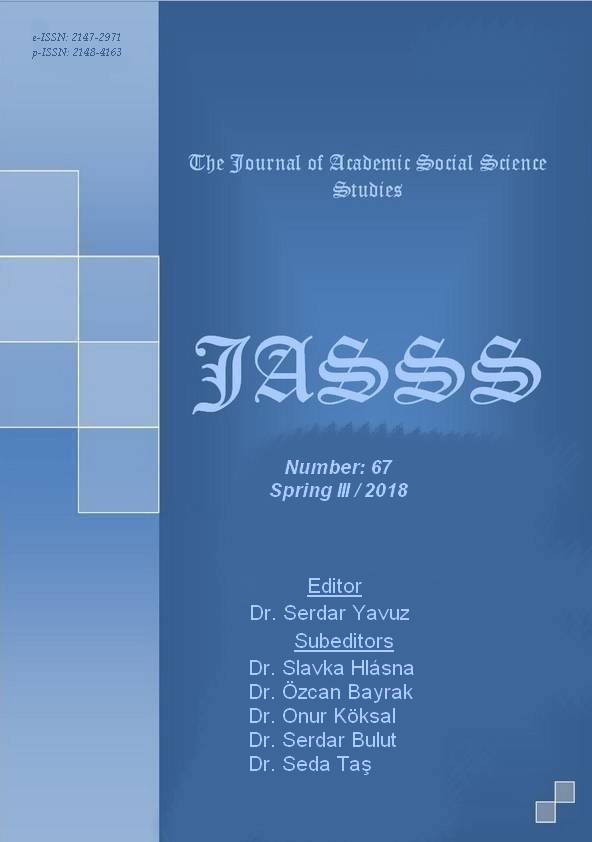Author :
Abstract
Namazlar vakitli ibadetlerdir. Vakitlerinin başı ve sonu bellidir. Birden fazla ayette işaret veya delalet yoluyla namaz vakitlerine atıf yapılmış, ancak ayetlerde vakitlerin başları ve sonları açık bir şekilde beyan edilmemiştir. Namaz vakitlerinin başı, sonu ve hangi vaktin daha faziletli olduğu konusunda detaylı bilgi verip beyan eden Sünnettir. Sabah namazı vaktinin fecr-i sadık ile başlayıp güneşin doğuşuyla son bulacağı konusunda dört mezhep arasından herhangi bir ihtilaf söz konusu değildir. Nevevî bu konuda icma olduğunu söylemektedir. Ancak sabah namazının faziletli vakti konusunda iki farklı hadis rivayeti mevcut olduğundan sabah namazını kılmanın en faziletli vakti konusunda genel anlamda iki görüş, teferruatta daha fazla görüşler ortaya çıkmıştır. Bir görüşe göre sabah namazında tağlis yapmak yani vaktin evvelinde henüz hava karanlık iken sabah namazını kılmak daha faziletlidir. Şâfiî mezhebi bu görüşü savunmakta olup Şâfiî uleması arasında bu konuda ihtilaf söz konusu değildir. Mâlikî ve Hanbelî mezheplerinin görüşleri de genel manada bu yöndedir. Ancak İmam Mâlik ile Ahmed b. Hanbel’den farklı rivayetler de nakledilmektedir. Bir rivayete göre Ahmed b. Hanbel, sabah namazının cemaatin toplanma durumuna göre ayarlanmasının daha faziletli olduğunu söylemiştir. Mâlikî mezhebinin bir görüşüne göre de sabah namazını insanlar için kolay olan vakte göre ayarlanmanın daha uygun olup, kış mevsiminde vaktin evvlinde kılmak, sıcak mevsimlerde ise isfâr vaktinde kılmak daha faziletlidir. Diğer bir görüşe göre isfâr vaktinde yani ortalık biraz aydınlık olunca sabah namazını kılmak daha faziletlidir. Bu görüşü Hanefî mezhebi benimsemektedir. Fakat isfâr’ın ölçüsü net olarak belli olmadığından Hanefî fukahasından bu konuda farklı görüşler nakledilmektedir. Ebû Hanife’ye göre vaktin ortasında sabah namazına başlamak daha faziletlidir. Hanefî fıkıh âlimlerinden Tahâvî’ye göre ise sabah namazında faziletli olan tağlis ile isfâr’i cem etmektir. Buna göre ğalas (karanlık) vaktinde namaza başlanır, kıraat uzatılır ve isfâr vaktinde namaz bitirilir. Sabah namazını isfâr vaktinde kılmak erkeklere mahsustur, kadınlar için ise, sabah namazını vaktin evvelinde henüz hava karanlık iken kılmak, diğer namazları ise cemaat dağıldıktan sonra kılmak daha faziletlidir.
Keywords
Abstract
The nameless are time-consuming acts. The beginning and end of their time is obvious. More than one verse refers to the time of prayer through signs or delaterals, but the beginning and end of the time is not clearly stated in the verses. It is the Sunnah that gives detailed information about the beginning, end and the time of prayer. There is no dispute between the four sect that the morning prayer will begin with the Fajr-I Sadik and end with the rising of the sun. Nawawi says there is an ICMA on this issue. However, since there are two different hadith narrations about the time of the morning prayer, there are two opinions about the time of the morning prayer in general and more opinions about the time of the morning prayer have emerged in detail. According to an opinion, it is more appropriate to perform the morning prayer during the morning prayer, i.e. to perform the morning prayer while it is still dark before the time. The shafi'i sect is defending this view and there is no conflict between the shafi'i ulama and the shafi'i ulama. The opinions of Maliki and hanbali sects are in general. However, Imam Malik and Ahmad B. There are also different rumors from hanbal. According to a rumor, Ahmad B. Hanbel said that it is more prudent for the morning prayer to be adjusted according to the meeting of the community. According to the view of the Maliki sect, it is better to adjust the morning prayer according to the time that is easy for people, and it is more appropriate to make it during the winter season before the time, and to make it during the time of isfar during the hot Seasons. In other words, it is more prudent to perform the morning prayer at the time of isfaar, when it is a little light. This view adopts Hanafi sect. However, since the measure of isfar is not clear, different views are conveyed from the Hanafi fuqah. According to Abu hanifa, it is more prudent to start the morning prayer in the middle of the time. According to Tahavi, one of the Hanafi fiqh scholars, isfar is to cem with taglis, who is virtuous in the morning prayer. According to this, prayer is started at the time of the ghalas (dark), and the chakra is extended and prayer is completed at the time of the isfar. It is permissible for men to perform the morning prayer at the time of isfar, and for women to perform the morning prayer at the time of the day while it is still dark, and to perform the other prayers after the community has been dissolved.





